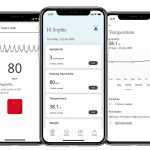Congratulations to Professor Nita Forouhi on being elected to the Academy of Medical Sciences Fellowship. Nita is one of 58 exceptional biomedical and health scientists to be elected to the […]
Rare gene variants conferring up to 6-fold increase in obesity risk hint at new mechanism affecting appetite control
A study led by Medical Research Council (MRC) researchers has identified genetic variants in two genes that have some of the largest impacts on obesity risk discovered to date. The […]
Prof Nick Wareham to play leading role in new national research network for population health
New network established to bring together researchers from across the United Kingdom to boost research into sustainable and equitable population health improvement. The Director of the MRC Epidemiology Unit Professor […]
AI predicts healthiness of food menus and highlights ‘double burden’ of unhealthy food environment in deprived areas
Today the Guardian reports on how Unit PhD student Yuru Huang and colleagues have used artificial intelligence to predict the healthiness of cafe, takeaway and restaurant menus at outlets across […]
HERA study to better understand women’s reproductive health receives £5.6 million Wellcome award
Reproductive ageing in women is critical for fertility, but also has profound influences more broadly on health and wellbeing. Recent research co-led by scientists at the University of Cambridge has […]
Fenland Study helping uncover long term effects of pandemic on health behaviours
It’s now four years since the beginning of the COVID-19 pandemic. Research from the Fenland COVID-19 study and the main Fenland Study is helping us discover more about the impact […]
Study in 135 countries finds school uniform policies linked to students getting less exercise
School uniform policies could be restricting young people from being active, particularly primary school-aged girls, new research suggests. The study published today in the Journal of Sport and Health Science used […]
Cambridge Diabetes Seminar 2024 – Registration now open!
Registration is now open for the 2024 Cambridge Diabetes Seminar When: Sunday 18 August to Saturday 24 August 2024 Where: Clare College, University of Cambridge Cost: No registration fee, no […]
Food Research risK (FoRK) Toolkit launched to help researchers navigate industry interactions
Researchers engaging with the food industry can be subject to conflicts of interest and reputational risks. The Food Research RisK guidance and toolkit published in the BMJ can help researchers […]
Fenland mobile app study finds feeling depressed linked to short-term increase in bodyweight
Increases in symptoms of depression are associated with a subsequent increase in bodyweight when measured one month later, new research from the MRC Epidemiology Unit at the University of Cambridge […]
- « Previous Page
- 1
- …
- 4
- 5
- 6
- 7
- 8
- …
- 30
- Next Page »

 MRC Epidemiology Unit
MRC Epidemiology Unit







